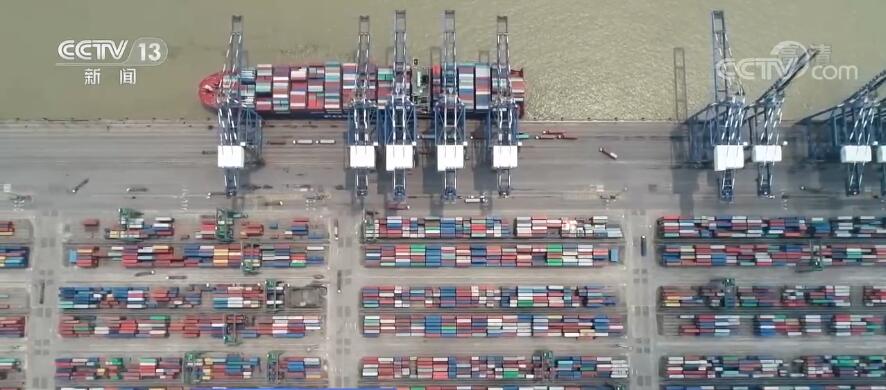CCTV News:As a "test field" for institutional innovation, at present, China has set up 21 pilot free trade zones to further explore reform, opening up and economic development. Under the general tone of keeping the word steady and striving for progress in stability, how to build and upgrade the Pilot Free Trade Zone and how to promote institutional opening?
Entering the new year, the respective trade pilot zones have continuously promoted institutional opening-up measures, leading the country to open to the outside world at a high level.

On February 14th, in Lingang New Area of Shanghai Free Trade Zone, the pilot reform of high-level open foreign exchange management for cross-border trade and investment was officially launched, covering 9 capital account reform measures and 4 current account facilitation measures.
Zhang Xiaohong, Deputy Director of the Finance and Trade Department of the Management Committee of Lingang New Area of Shanghai Free Trade Zone:The pilot policy, such as supporting small and medium-sized micro-high-tech enterprises to borrow foreign debts, combined with the policy of supporting qualified enterprises’ tax relief in the new area, will further help improve the business environment and attract more high-tech enterprises to settle down.
Jinan District of Shandong Pilot Free Trade Zone has built a platform to provide digital trade services for China-Europe trains. Just after it was put into operation, it provided one-stop online services for more than 200 foreign trade enterprises, such as warehousing, booking and customs declaration. Through blockchain technology, a unique code is attached to the container, which can check the location of export goods online in real time and realize accurate supervision before shipment.

On February 15th, Guangdong Province also issued 27 measures to promote trade and investment facilitation in the Free Trade Zone, proposing to support Hong Kong and Macao service providers to invest in the establishment of travel agencies, liberalize the international registration of statutory survey, and build the Guangzhou Futures Exchange with high standards.
On January 1, the negative list of foreign investment access in the Pilot Free Trade Zone was reduced for the seventh time, with the number of items reduced from the initial 190 to 27. The open field involved the first, second and third industries, the manufacturing items were cleared, and the service industry continued to expand and open.
Wu Hongliang, Deputy Director of the Foreign Investment Department of the National Development and Reform Commission:The new version of the negative list of foreign investment access has fully liberalized the manufacturing industry in the Pilot Free Trade Zone. At the same time, it has explored relaxing access restrictions in service industries such as market research in the Pilot Free Trade Zone, and accumulated experience for further expanding the opening up of telecommunications, medical care and other fields.